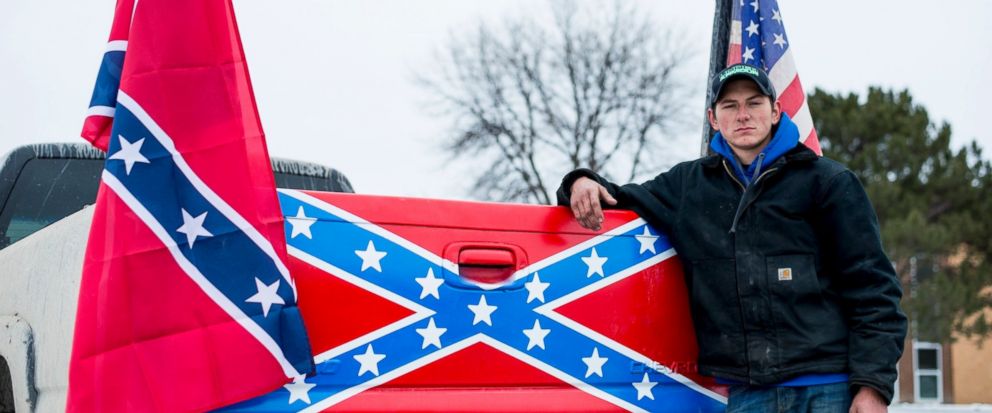“Racism will never go away.”
It’s been said as a lament and as an excuse, out of frustration and out of justification. I’ve heard it with an air of hopelessness, and I’ve even heard it as an “if you can’t beat ‘em, join ‘em” defense. When an off-color joke gets told and dirty looks are exchanged, the accused might say it to deflect personal blame, as if it’s no worse than downloading songs from the internet or driving thirty-five in a twenty-five. Everybody does it… It’s just a part of life, right?
Thankfully, most of what we overhear and see today is of the more subtle variety, like the five black women who had the cops called on them while golfing. If you’re the golf course in that situation, of course you’re going to seek out a non-racial explanation for that incident, but does “not keeping up with the pace of play” really warrant a 911 call? Do you really want to be on the wrong end of a news story like that?
There’s also statement racism and provocative “joke” racism. There are plenty of idiots out there who think it’s funny to play around with racial stereotypes and host Confederate Flag rallies in high school parking lots. Lately, it seems to be creeping back into popularity, or at least into the spotlight. And maybe I’m giving these idiots too much credit, but my theory is that these demonstrations are often carried out for the amusement of trolling snowflakes rather than out of legitimate xenophobia. They’re called demonstrations for a reason; they’re looking for an audience and intending to spark controversy. If the point of a Confederate Flag rally is simply to hang out with like-minded “country boys,” they’d circle up in a cornfield way out in the country, and no one would bat an eye. But where’s the fun in that? The whole point is to get under the skin of us oversensitive, white liberals, right? Racist jokes are just easy fodder. I’m sure we all know someone who’s polite enough to minorities face-to-face, but perfectly willing to disparage them out of earshot.
But flagrant examples do exist, and they can be appalling. I came face-to-face with it yesterday.
Without going into too much detail, one thing I love about my job is that I travel all over the state of Michigan, often for extended periods of time. This allows me to interact with people of various backgrounds and viewpoints (with the proviso that everybody’s in the ag industry). I love learning what makes a community tick, what motivates an individual, and what causes trends in an area. I’ve been surprised plenty of times—there are a good many farmers out there who despise Trump—but I’ve also seen a lot of rural stereotypes reinforced.
Politics come up in conversation very organically, especially when it’s assumed that everyone is on the same side. And for much of rural America, that is the case. As a government employee, I’ve learned to deflect as many of these discussions as possible; I’m just there to provide a service and not pass judgment on anyone’s beliefs or lifestyle choices. As someone with pretty thick skin, I’m pretty good at that, for better or for worse. I’ve heard plenty of grim comments, lewd jokes, and racial wisecracks, and the diplomatic thing to do in those situations is usually to disregard and move on.
Usually. Sometimes, you have to call something out for what it is.
For the past three months, I’ve been driving across the Upper Peninsula, and I’m becoming more acquainted with the Yooper way of life. I don’t have much of a sample size, but one thing I’ve observed is that appreciation for downstate city life is in short supply. At one farm I visited yesterday, the farmhands were all taking shots at my hometown, Grand Rapids. Only one of them had been there before—thirty years ago.
It was all good-natured trash talk, but after a while I had to stick up for good ol’ GR. Basically, I said that it’s where I call home, and it’s made me who I am. Just like how growing up in the (often maligned) UP gave those guys the tenacity and grit they’re known for today. I forget what exactly I said, but it came out surprisingly eloquent, and even got an affirmative “Mmm.” out of a couple guys. It was a really nice moment.
And then “Nate” just had to ruin it. Out of the blue, he asked, “So how long do you have to live? You’re not dead yet, are ya?” He had kind of a malevolent scowl on his face that confused me.
“What?” I blinked.
“That poison water down there. I thought it killed off all the niggers, but I guess there’s still a few left, aren’t there?”
Straight out of left field. I just stared at him in shock, calculating how to respond, and I couldn’t think of anything. After an awkward silence, someone said, “I think you mean Flint, right Nate?”
From there, the conversation was redirected elsewhere, and I left. I thought about it the whole ride home though. As a representative of an unbiased government agency, I’ve learned to deflect tasteless comments with relative indifference, but that was one of the most blatantly offensive lines I’d ever heard. Nate’s comment was said with the dead-eyed tone of someone who openly dislikes black people. It was a truly grim remark paired with a gaze that said, ‘I mean it.’
A couple months ago, a kid shot his parents on the campus of CMU, and it made the news up here in the UP. Nate was in a really dark mood that day. Everybody at the farm was talking about how this might affect gun control laws in Michigan, and Nate’s contribution was this:
“I wouldn’t be surprised if the Democrats paid that Parkland shooter to go into that school. They want legislation and gun control so bad they’re willing to kill for it to prove a point!”
Now that was some dangerous rhetoric.
I remember the awkward silence that followed that comment too, only that time I did respond. It wasn’t much, but I laughed nervously to ease the tension and said, “I don’t think so, Nate.”
In my job orientation I was advised to stifle these types of confrontations and move past as quickly as possible, but what Nate said yesterday deserved to be called out. But I didn’t say anything, and I’m ashamed of that. In the silence that followed, I was only thinking about what a great relationship I have with these guys, how I have to work with them for three more weeks, and how taking offense could jeopardize all that. I was thinking about maintaining civility as an employee of the State, how it might be best to just ignore it.
But it left a sour taste in my mouth as I drove away, and even now it still doesn’t sit right. I’m angry at what was said, but I’m almost angrier with myself for not having the courage to take the moral high ground.Only cowards say nothing.
Over dinner, I sat alone at a bar mulling it over, wondering if maybe I’m dwelling too long on a dismissible comment. Maybe it really isn’t that big of a deal. He’s just one guy, he won’t be around forever, and he’ll probably never run into a black person for the rest of his life. No harm, no foul, right? Kind of like if a tree falls in the woods, and no one’s there to hear it, does it make a sound? If a racist says “nigger” in the UP and there are no blacks around to be offended, does it matter?
I think it absolutely does. And I wish I had said something.

Nick Meekhof (’15) graduated with a major in writing and a minor in geography. A farmer for the first twenty-three years of his life, Nick currently works for the Michigan Department of Agriculture. When he’s not traversing the state conducting orchard inspections, he can be found exploring the rivers, forests, and small towns all throughout the Great Lakes State. His current goals include kayaking one hundred Michigan rivers, swimming in Lake Michigan during every month of the year, and visiting as many Michigan breweries as possible.








